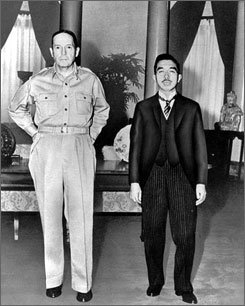I’m enjoying my time here in Annapolis, as we get ready for Otakon, the wildest anime convention on the East Coast, which starts on Friday and goes through Sunday. If you’ll be at the show, we hope you’ll come by and see us in booth 611. We’ll have many great products for our customers, especially our PC dating-sim games and other goodies (and something secret, too). Every J-List reader who comes by will get something free — see you there!
I’m still enjoying Heroes, the TV show about people who discover they have super powers, including Japanese salaryman Hiro (“hero,” get it?), who develops the ability to stop time with his mind. The character is played by uber geek Masi Oka, who’s done work as a computer effects guru for Lucasfilm and who has a degree in computer science. While the show strives to present the Japanese dialogue between Hiro and his friend Ando in a natural way, there are times that the English teacher in me says, hey, Japanese ESL types wouldn’t really say that. In one scene, the English-challenged Hiro shouts out, “Don’t worry, New York. We will save you!” Due to a grammatical oddity of Japanese, the simple future tense (“we will save you”) and the simple present (“we save you”) are identical, which means that it’s quite common for a Japanese person to say something like “I go there” when he’s really talking about something he’ll do in the near future. Thus, it’d be more natural for Hiro to shout “We save you!” in this scene. Another giveaway that Masi’s lines were written first in English is his (usually) accurate use of the “s” as found in sentences like “he drinks water.” Truly the bane of learners of English all over the world, third person singular “s” (or for oddball words like fix or pass, “es”) serves no actual purpose yet must always be present for speech to sound correct. If you speak English as your mother tongue, go thank your parents — you’ll never have to go through the terrible experiences that ESL students must face!

As usual, being in a new part of the U.S. brings new observations about Japan. One thing that’s struck me is the incredible history that can be found even in a young country like the United States, which is evident in every corner of a place like Maryland. You can really feel the history in the names of things around you, like Anne Arundel County where I am now, named after Lord Baltimore’s beloved wife back when the colony was getting started. This is in stark contrast to Japan, which rarely wraps history into its names, preferring, say, the name of Misato (“three lands”) for a part of our city that was incorporated from three other areas rather than naming it after a person who did something special in the region. The various schools I’ve attended in the U.S. often bore either the names of historical figures like Junipero Serra or of an educator who had distinguished himself in his teaching career, but public schools in Japan get numbers, e.g. Junior High School No. 1, Junior High School No. 2. Similarly, since most streets aren’t named in Japan, there’s no equivalent of honoring someone by naming a street after them — no local version of “Martin Luther King Jr Blvd.”
It turns out that there’s a reason why Japanese might have a different attitude about its place names than we do here in the U.S., due to the unique nature of its rapid modernization, which essentially saw the country going from a feudal system to a semi-modern constitutional monarchy in just two decades. In 1871, the Meiji government decided that the only way to really ensure the changes they were forcing on their people would stick would be if the old system of domains, called han, was eliminated entirely. They declared the “elimination of the domain system, and the creation of the prefectural system,” which is called hai-han chi-ken (HAI-han chee-KEN) in case you want to impress a Japanese person with your knowledge of archaic Japanese words. During this time, the entire country was re-incorporated into a French-style system of prefectures, with every line redrawn and every regional name changed. Our prefecture had been called Kozuke-no-kuni, but was renamed Gunma, which means “a herd of horses,” thus making Japanese from other parts of the country think that we’ve got lots of horses, when there are not really any at all. The idea that a country would redraw all its internal borders and eliminate all historical place names seems unthinkable, but that’s how how serious the “Forefathers” of modern Japan were about creating a country that could stand shoulder-to-shoulder with the modern powers of Europe and the U.S.















